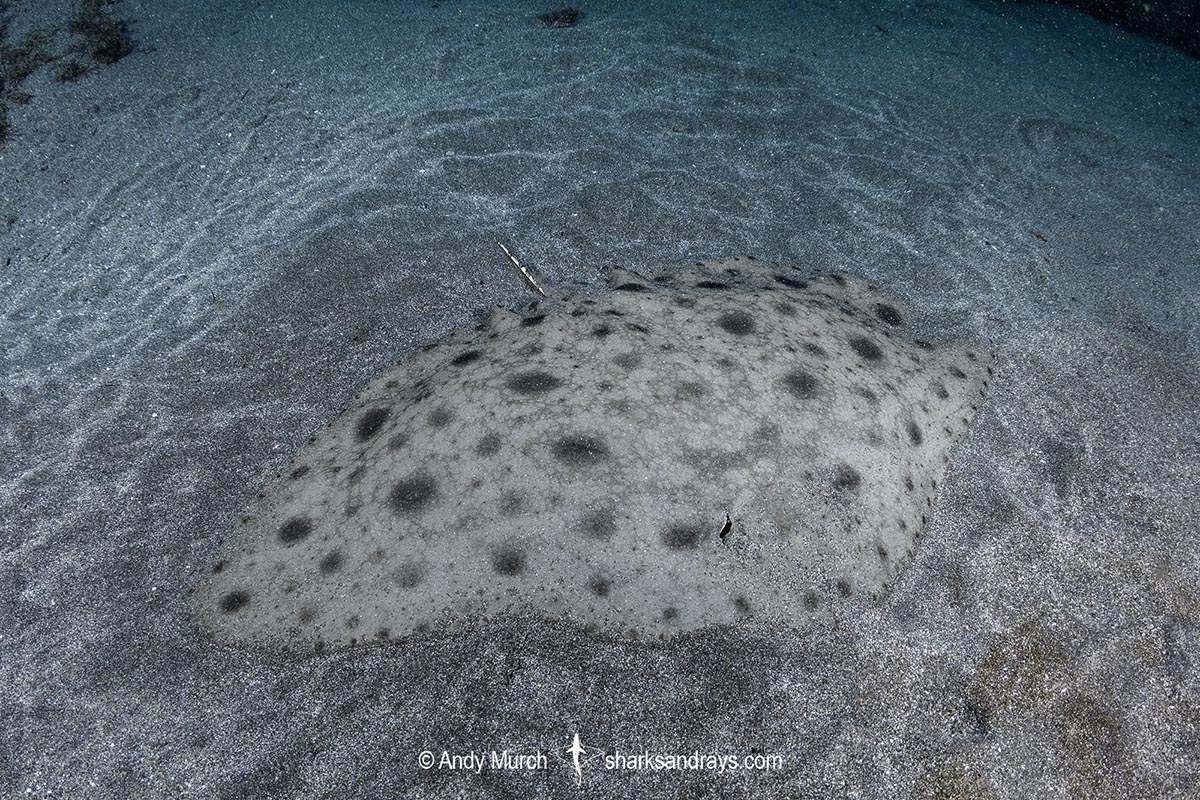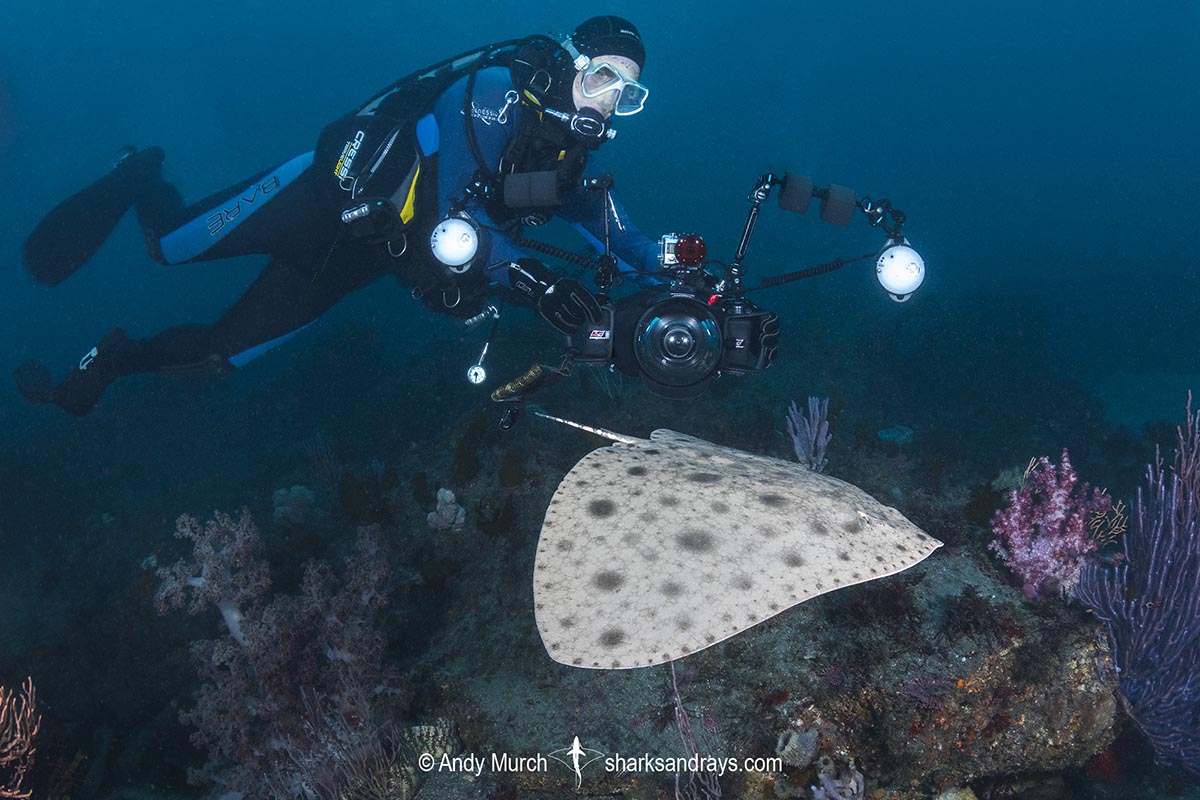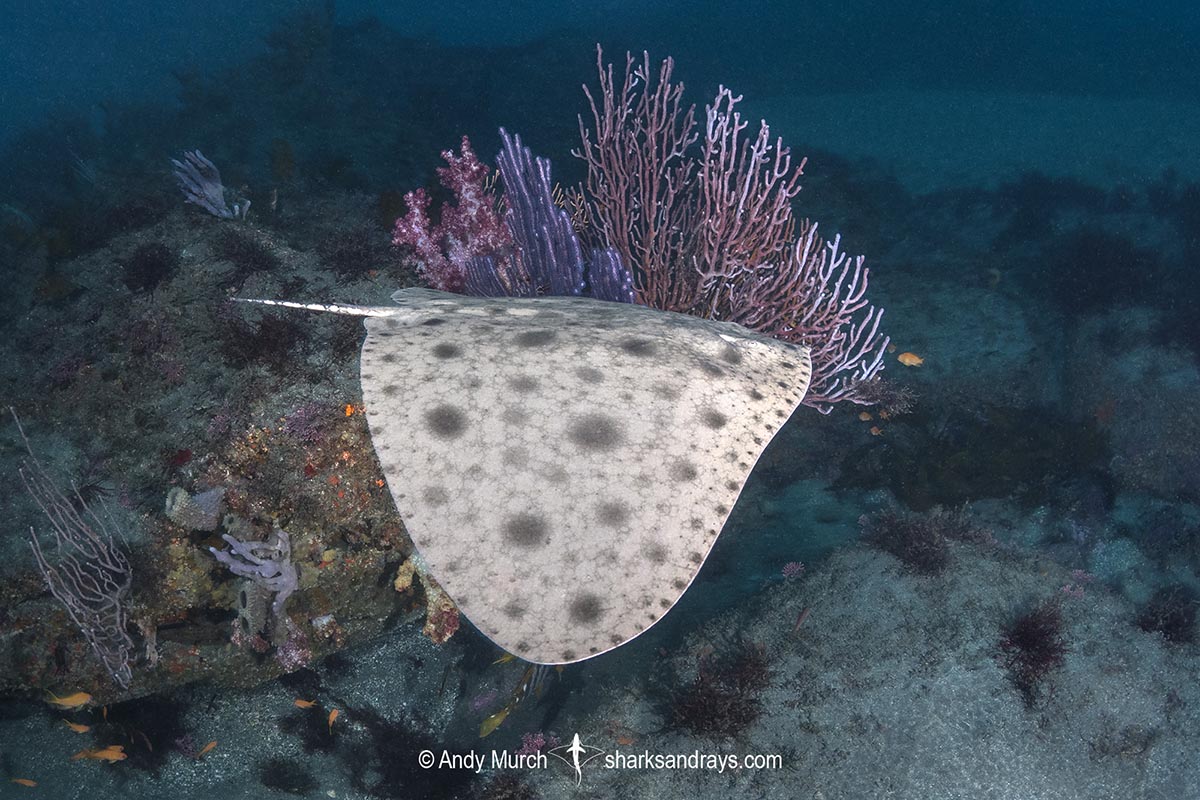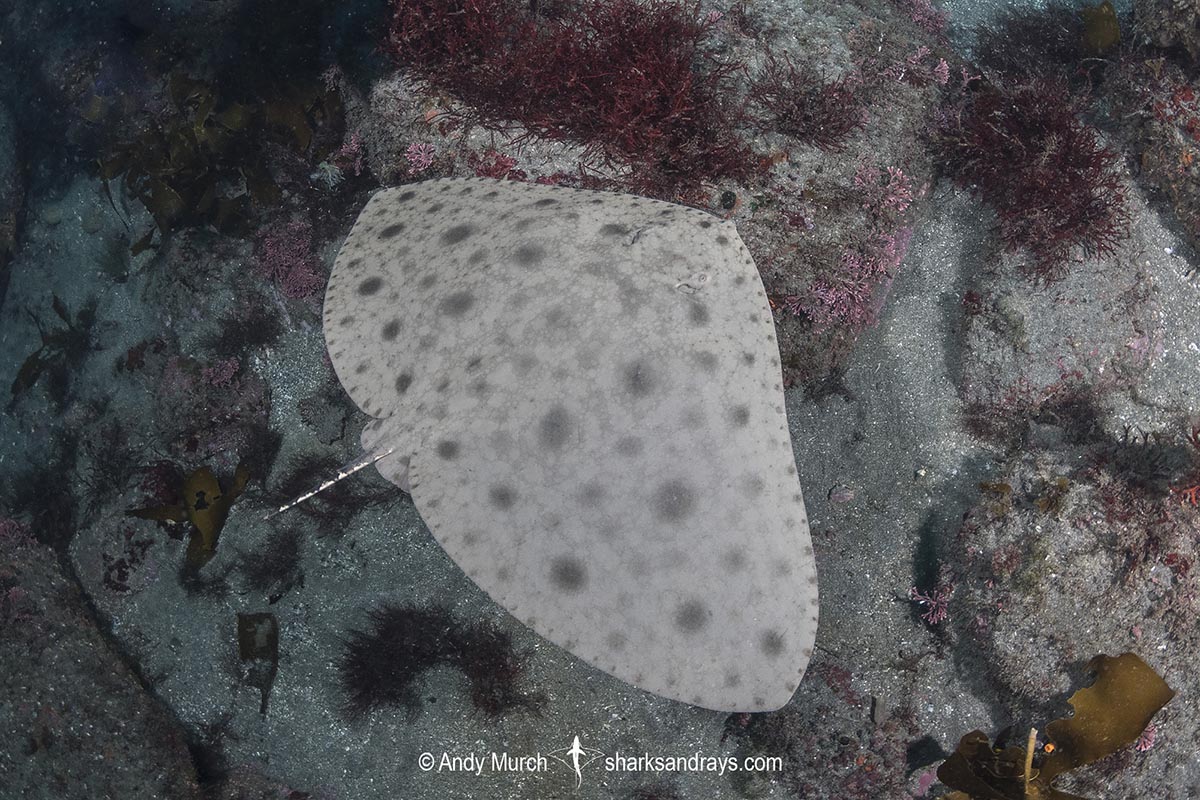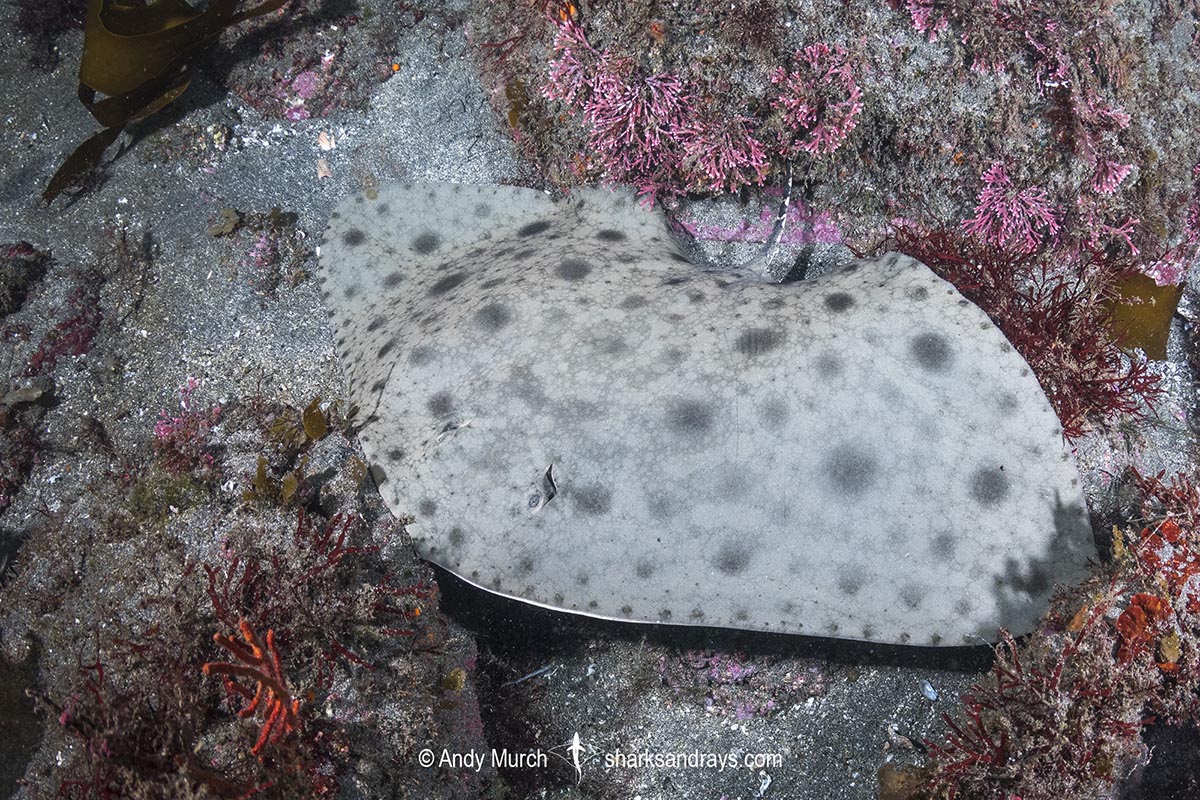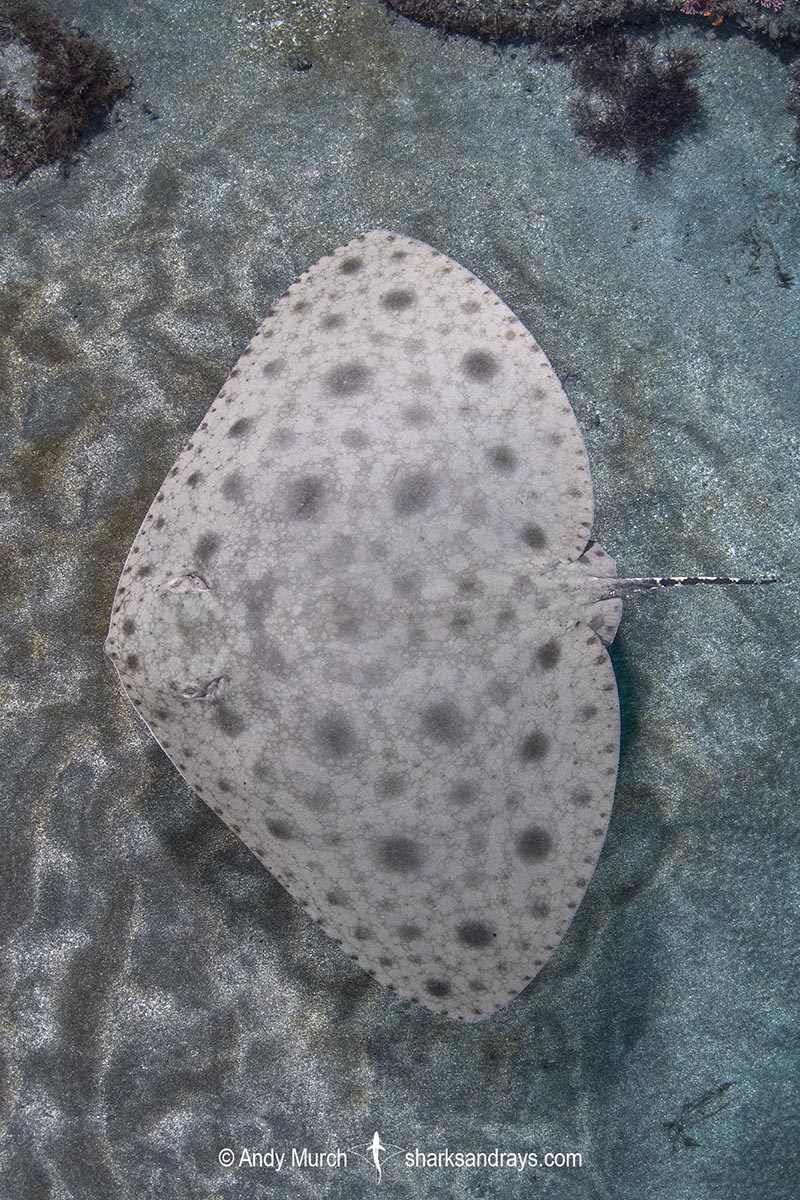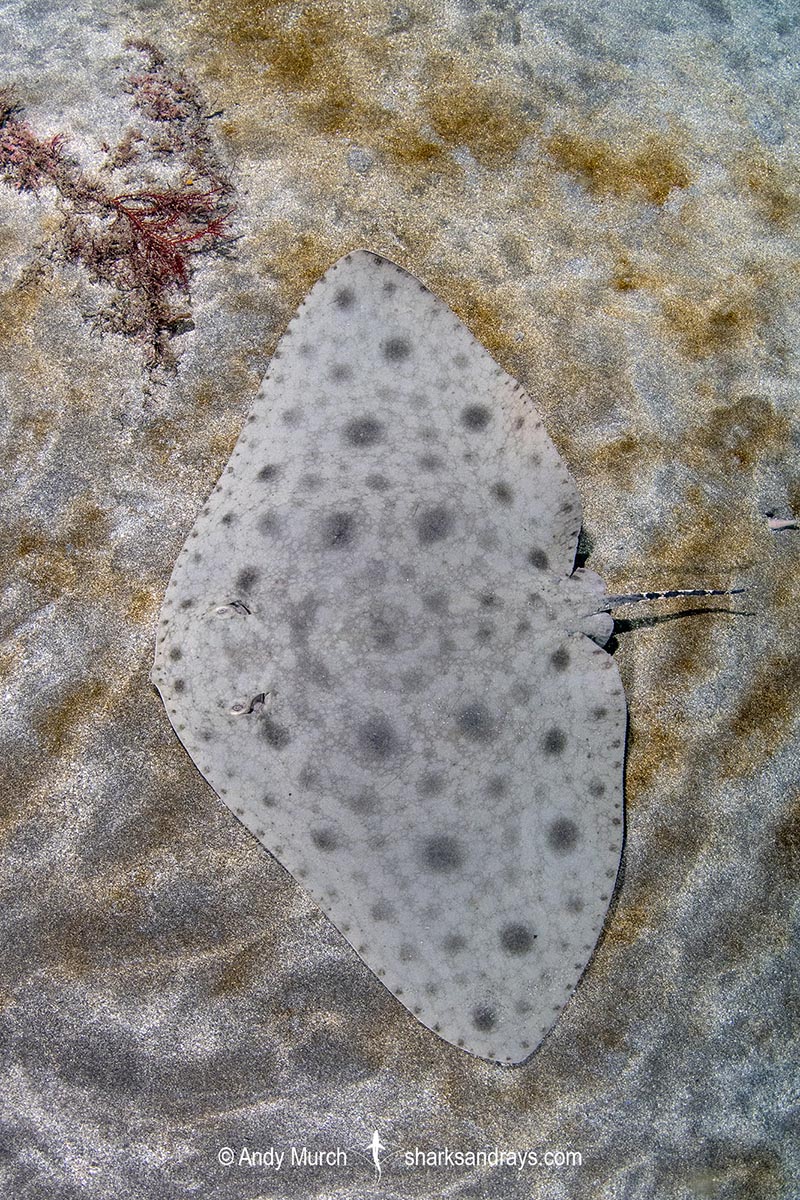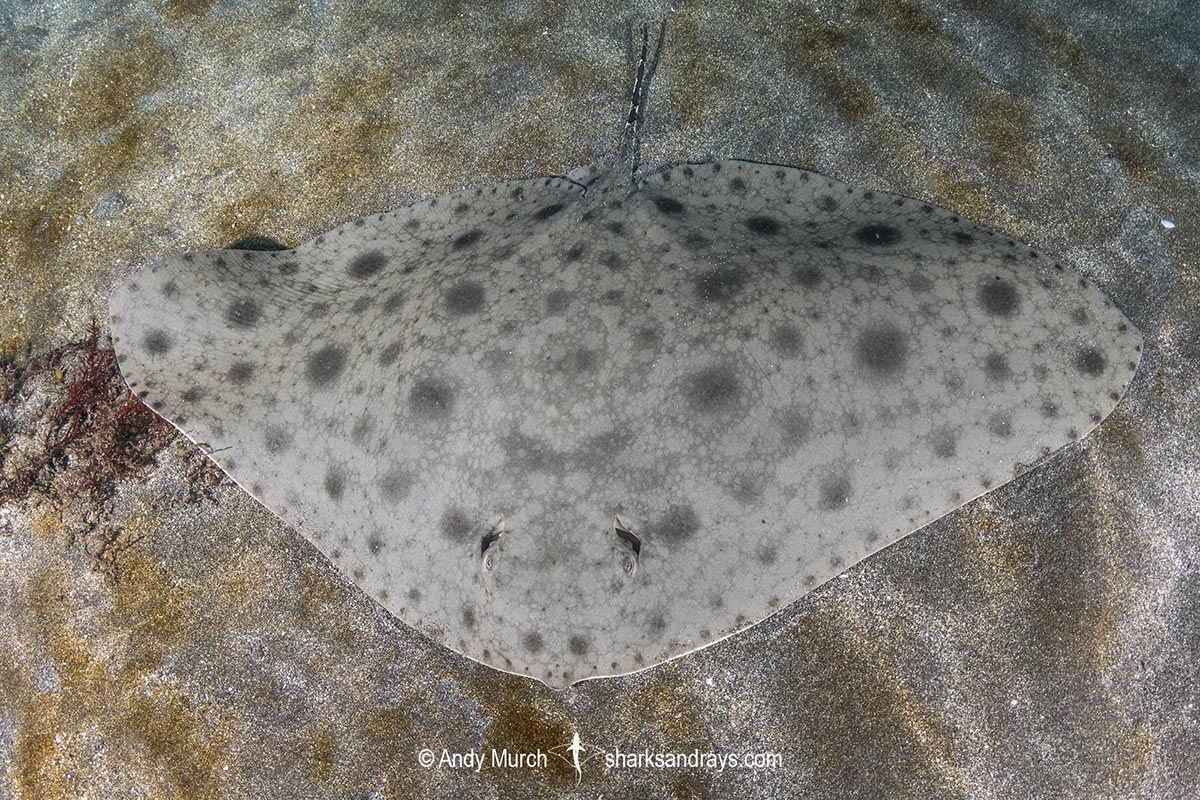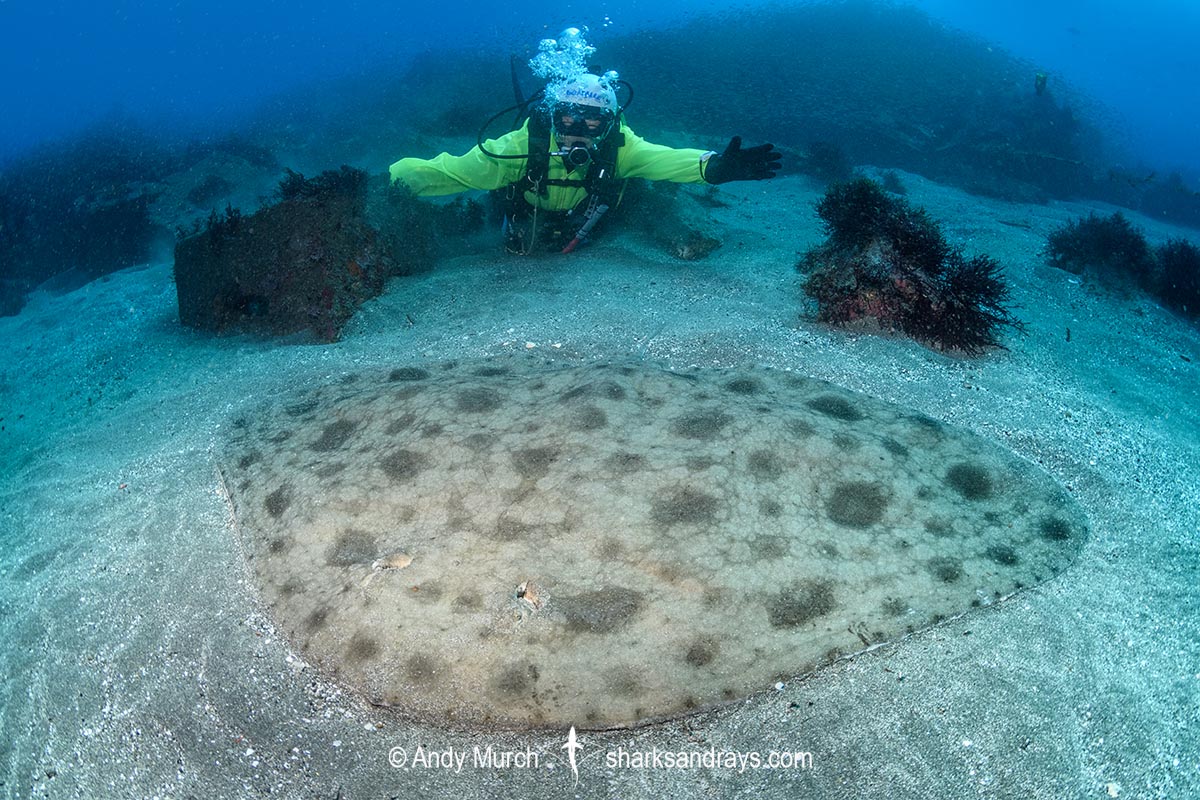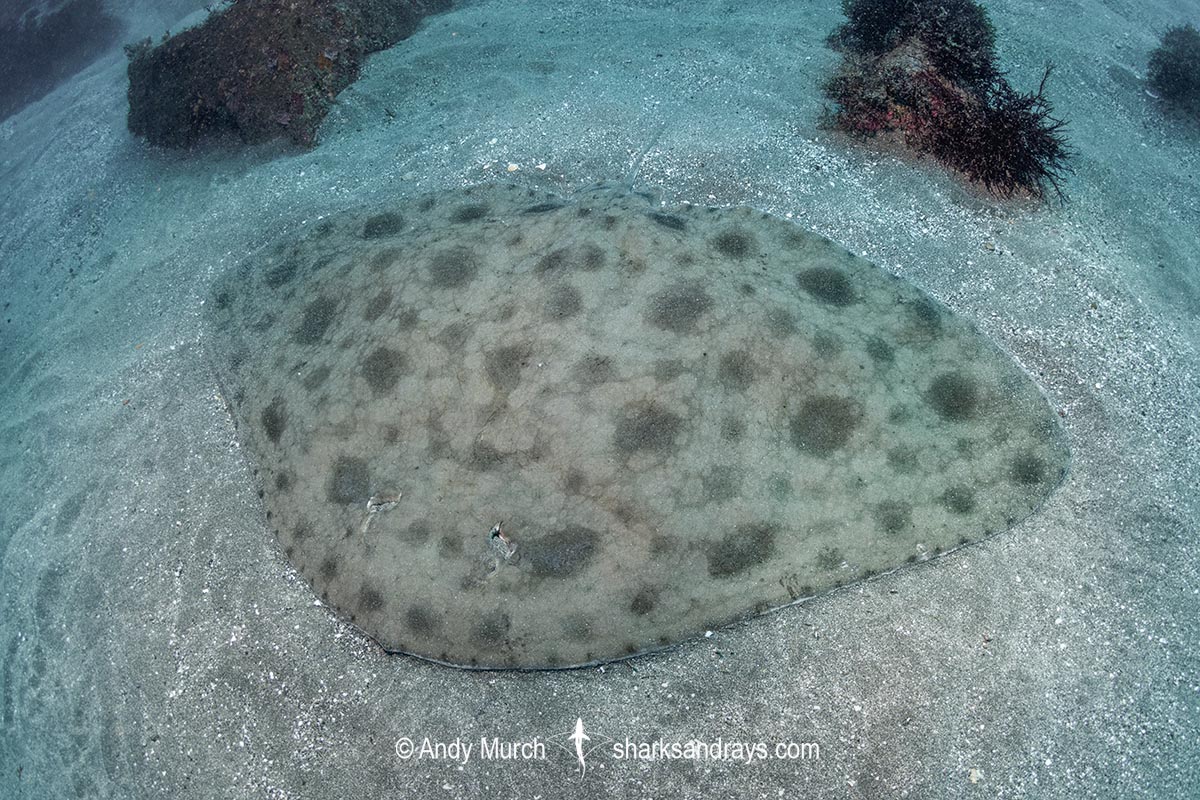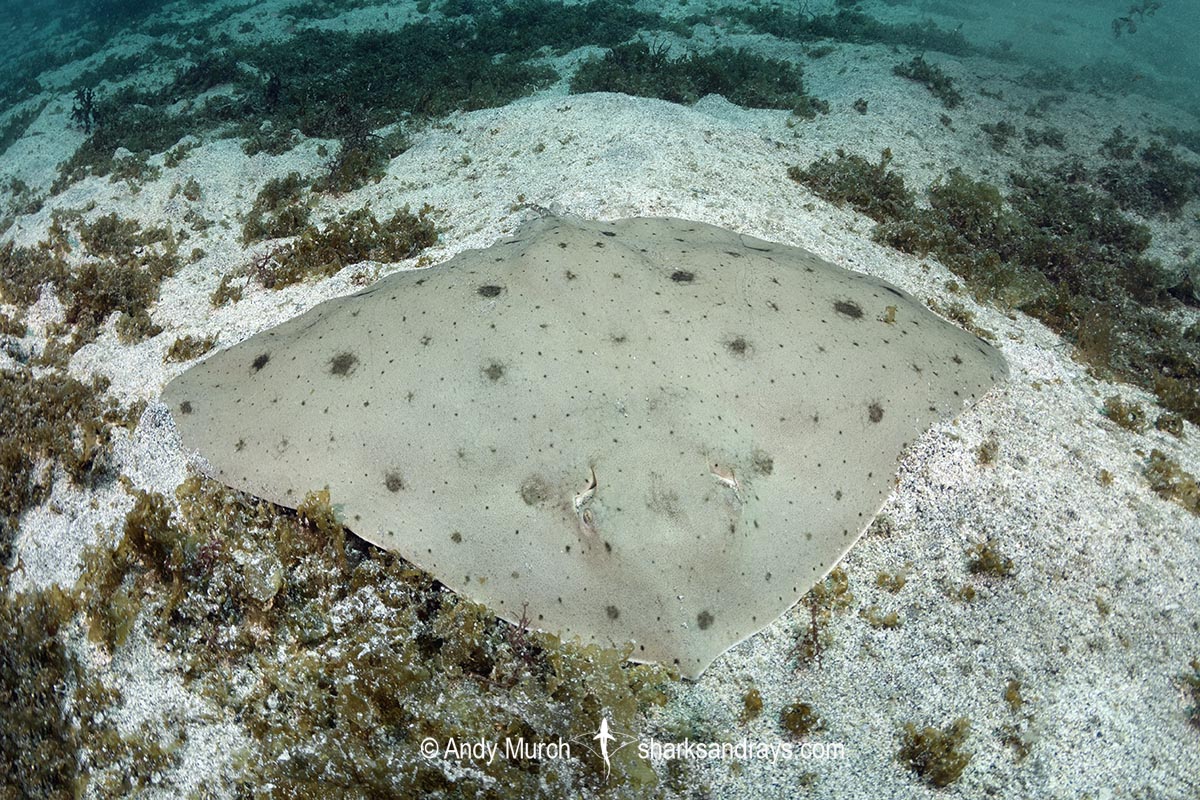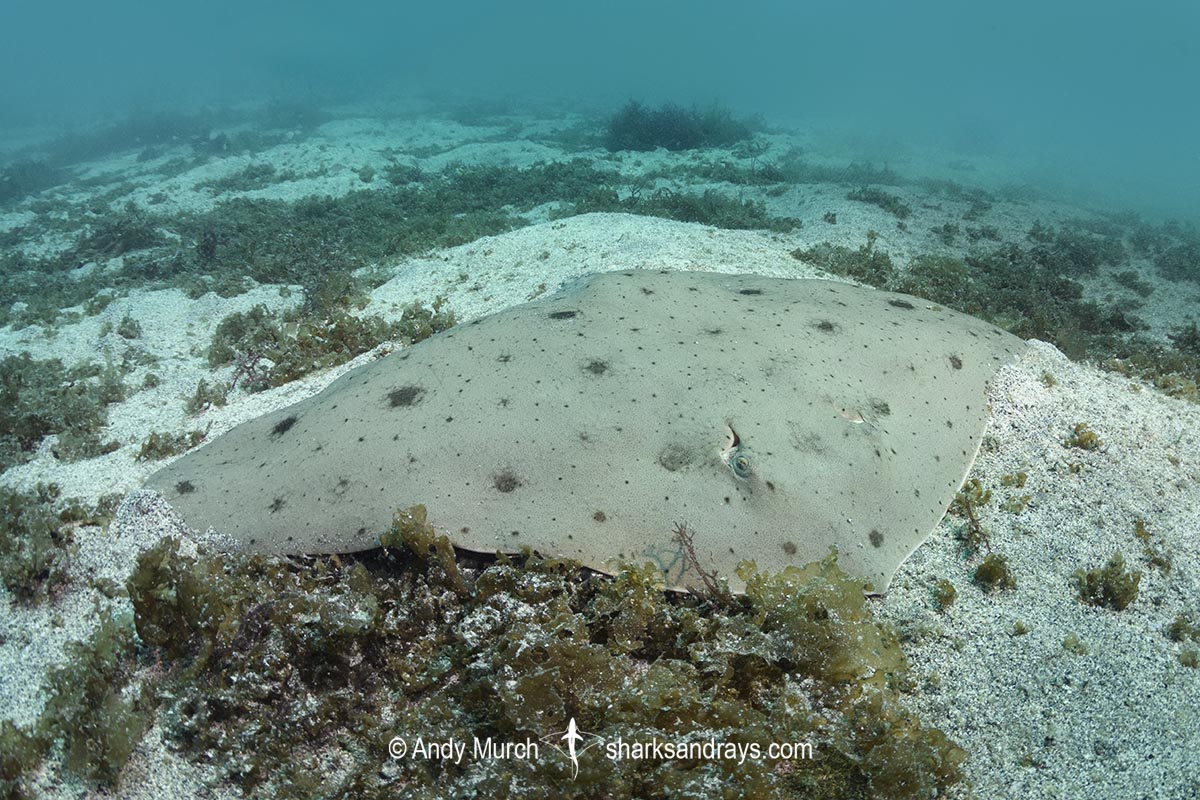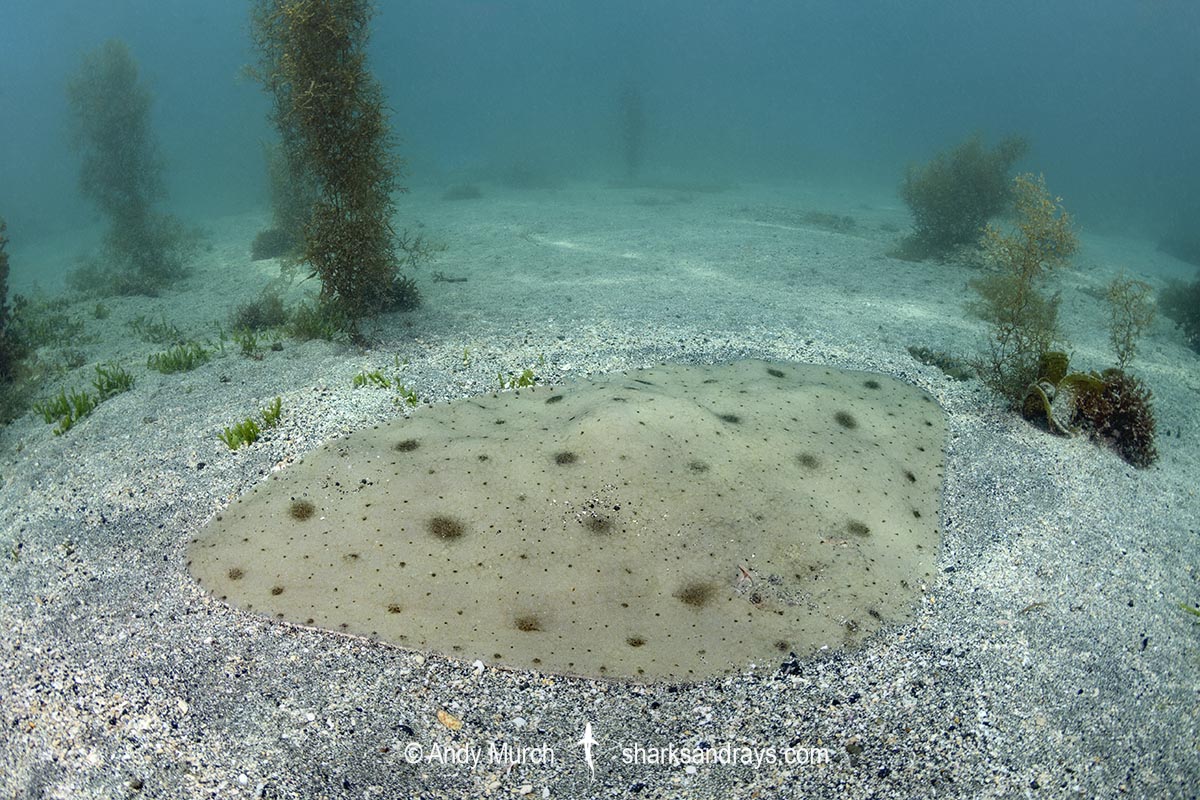Common name
Japanese Butterfly Ray.
Binomial
Gymnura japonica.
Synonyms
Gymmura japonica, Pteroplatea japonica.
Identification
A large butterfly ray with a wide, vaguely kite-shaped disc. Disc width approximately 1.8-2.2 x length. Pectoral fin apices angular. Snout short.
Eyes very small. No tentacle present on posterior margins of spiracles. Spiracle has a concave inner margin. Mouth arched with a concave symphysis on lower jaw.
Skin completely smooth. Tail short. Dorsal fin absent. Caudal sting small but always present.
Colour
Dorsum brownish-grey, usually with a pattern of large, diffuse, dark spots or blotches centrally, and small dark spots around disc margin. White spot occasionally present posterior to one or both spiracles. Ventrum white or brownish. Tail with 5-9 black bands or completely black in some large specimens.
Size
Maximum disc width 145cm. Disc width at birth 18cm.
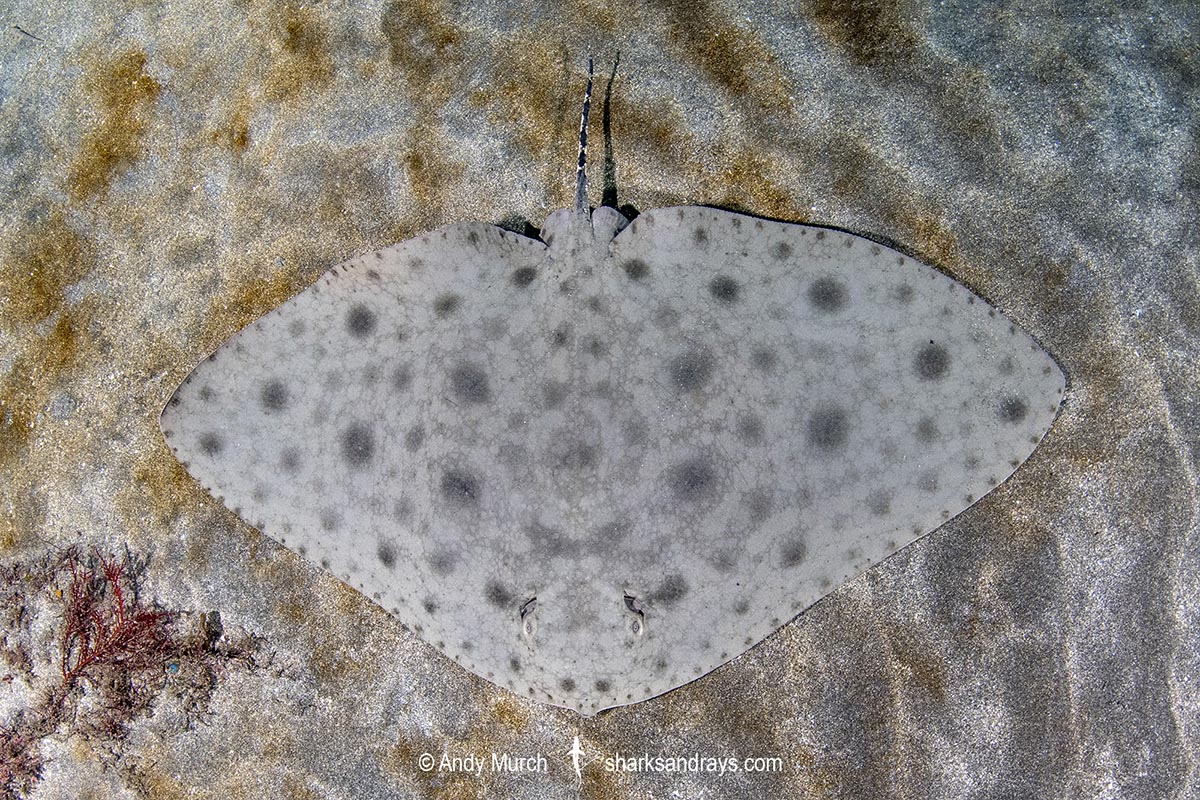
Conservation Status
VULNERABLE
The Japanese butterfly ray is a bycatch component of multiple fisheries including trawl, gillnet, and set net. It is retained for human consumption and fish meal in Taiwan and China, but discarded in Japan.
In Japan the population appears to be stable, but reductions of upto 95% have occurred on some parts of mainland Asia. Overall, it is estimates that the population has decreased by 30-49% in the last three decades.
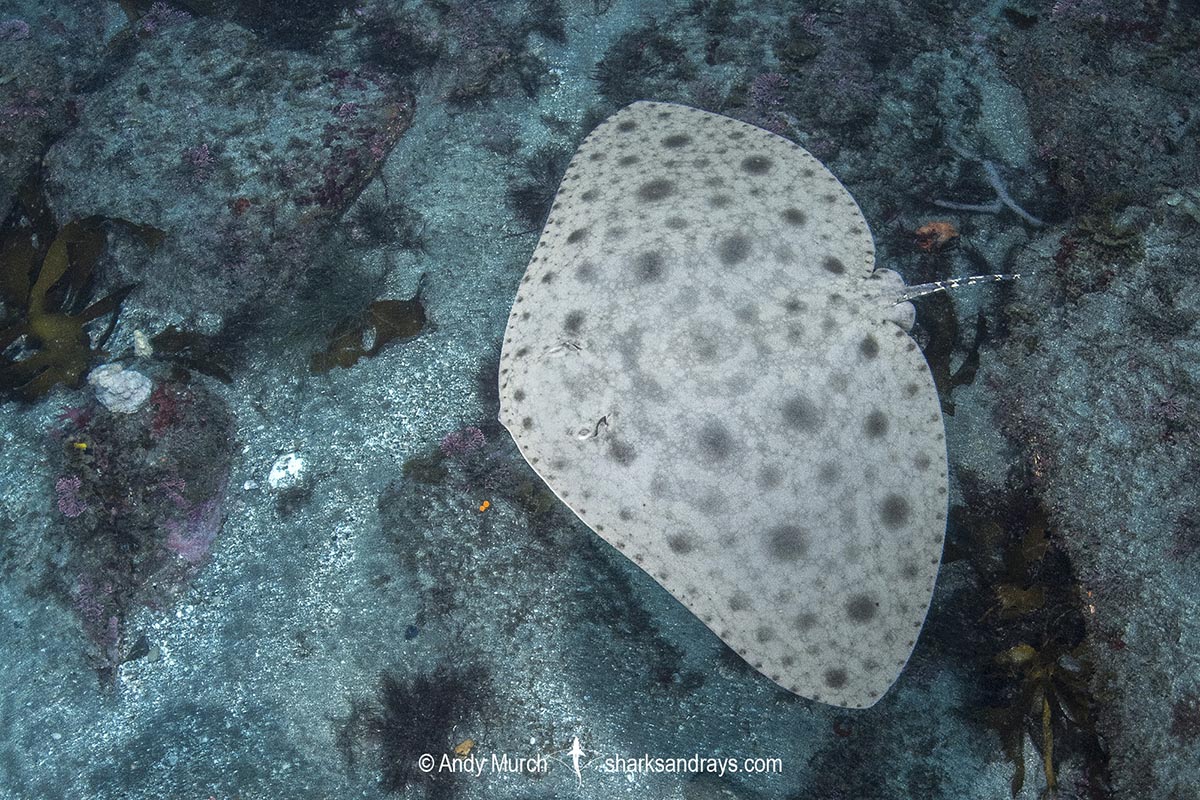
Habitat
Tropical to warm-temperate water. On sandy or muddy substrates, often in shallow bays. Max depth unknown.
Distribution
Northwest Pacific Ocean. Japan, Korea, China, and Taiwan.
Reproduction
Aplacental yolk sac viviparous. Litter size 2-8. Gestation unknown.
Diet
Diet unrecorded but probably feeds mostly on small fishes like other butterfly rays.
Behavior
Sedentary. Camouflages its body with sand by flapping its fins while resting on the bottom.
Reaction to divers
Fairly tolerant if not approached too closely. Will sometimes allow divers to slowly waft sand away from its disc but may bolt if it feels threatened.
Diving logistics
Relatively common on dive sites on the south coast of Honshu Island including sites in Chiba, and the Izu Peninsula.

